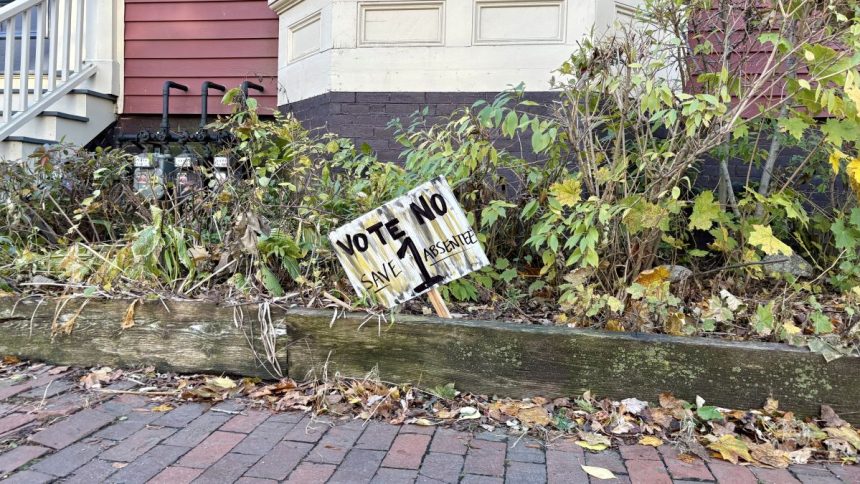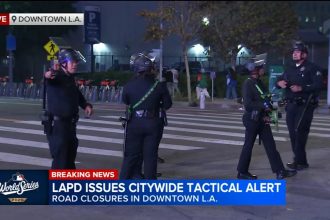Maine voters on Tuesday soundly rejected a proposal to implement voter ID requirements and limit absentee voting.
The Associated Press called the race just before 10 p.m. on Tuesday. With 96 percent of the votes counted as of 2:30 p.m. Wednesday, the majority of voters — 64 percent — had voted against Question 1.
A coalition called Voter ID for ME brought the proposed legislation before voters through a process called a citizen initiative.
Question 1 would have required voters to present photo identification in order to cast their ballot and would have made a number of changes to absentee voting procedures, including eliminating absentee ballot requests by phone, the ongoing absentee voter enrollment program and two days of early in-person absentee voting.
It would have restricted local control over elections, including by limiting municipalities to just one drop box. It also directed the secretary of state’s office to provide free, non-driver ID cards.
The group behind Voter ID for ME is the conservative political action committee The Dinner Table, which was co-founded by Richmond resident Alex Titcomb and Rep. Laurel Libby, the Auburn Republican who earlier this year gained national attention for social media posts she made about a transgender high school athlete.
If Question 1 had passed, Maine would have joined states like New Hampshire, Tennessee and Wisconsin in having a strict photo ID law — a move that is reflective of growing efforts by conservatives nationwide to tighten voting access.
Voter ID for ME raised nearly $587,000, most of which came from the Republican State Leadership Committee.
Proponents of Question 1 argued that the final wording of the question, which came from the secretary of state’s office, was misleading.
“Polls show Maine voters support Voter ID. Unfortunately, Maine has a partisan Secretary of State who used her powerful position to weaponize the ballot question,” the Yes on 1 campaign said in a statement after the race was called.
“Ultimately, Maine voters did not have the opportunity to vote on Voter ID,” the campaign said, adding that the opposition campaign misled voters on the substance of the referendum and instead spread “lies and fear” that the law would unduly restrict some Maine voters.
In the lead up to Election Day, opponents of Question 1 said the proposed legislation was a “clear attack on absentee voting in Maine.”
“This is a voter suppression measure. It’s meant to reduce the number of people who participate” in elections, said David Farmer, the Save Maine Absentee Voting campaign manager.
Opponents also warned that the photo identification requirements would disenfranchise certain voters, including people who are incarcerated, students and tribal citizens.
Less than a month prior to the election, Gov. Janet Mills announced her opposition to Question 1.
In a statement released late Tuesday night, Mills said that “once again, Maine people have affirmed their faith in our free, fair and secure elections, in this case by rejecting a direct attempt to restrict voting rights.”
She added, “Maine has long had one of the highest rates of voter turnout in the nation, in good part due to safe absentee voting — and Maine people tonight have said they want to keep it that way.”
The coalition against Question 1 included the ACLU of Maine, Disability Rights Maine, the Maine Immigrants’ Rights Coalition and several other groups. In a statement Tuesday night, the League of Women Voters of Maine called the outcome a “win for voting rights and for Maine voters.”
Save Maine Absentee Voting raised nearly three times as much money as the Yes on 1 campaign. As of the night before Election Day, the coalition had raised more than $1.65 million.









